Ely bread riots: 'Painful memories' linger 25 years on
- Published
In this report from the time, BBC Wales' Andy Roberts explains how the trouble started on the first night
It is 25 years since a dispute between two shopkeepers over the sale of bread sparked riots on an estate on the edge of Cardiff. But has Ely's reputation recovered?
"We're trying to forget, really."
Those are the words of 51-year-old Pete Sullivan, of the Ely Garden Villagers Group, who was in his mid-twenties at the time.
The Ely bread riots saw a general store run by a Pakistan-born shopkeeper on Wilson Road pelted with bricks and rocks on Friday 30 August 1991.
Three nights of unrest followed, with up to 500 people facing off with 175 police officers in riot gear.
"I think it affected everybody. It was horrible, scary. We just want to get rid of it [the stigma]," he said.
It was the first time police in Cardiff had to tackle civil disorder on such a scale, with officers coming under a hail of stones, bricks and glass. They were even targeted by speeding cars.
Officers were drafted in from across south Wales to bring an end to a standoff with nightly flashpoints after hot summer days.
Police said it stemmed from a row between neighbouring shops on Wilson Road over the supply of bread.
BBC Wales' Tim Hartley reports on the tail end of the Ely riots in 1991
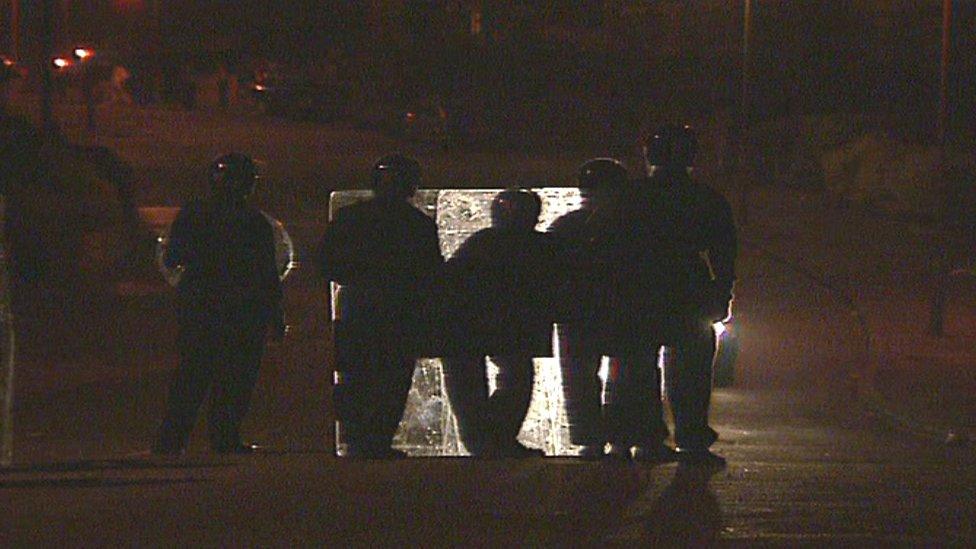
The initial rioting targeted a store owned by an Asian shopkeeper who had won a court injunction stopping a neighbouring shop from selling food and bread at a discount.
It was alleged the unrest was triggered when local youths discovered what had happened, although both shopkeepers disputed this.
"I think it was just over something really stupid, all over bread and milk being sold in a shop, which was just all rubbish. [It was] just people coming in from different areas to cause a commotion," Mr Sullivan said.
Claims by some residents that young people from elsewhere were converging on the area, looking for trouble, led to a "sterile zone" being created by police, with outsiders turned away.
Rioters smashed windows, petrol-bombed parts of the buildings on Wilson Road and even charged police lines with vehicles.
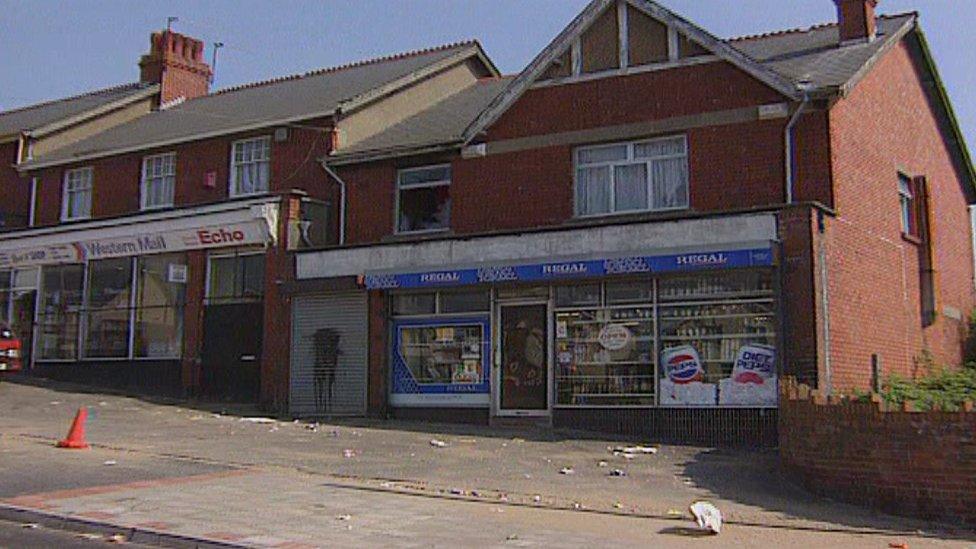
Shops on Wilson road in Ely were at the epicentre of the Ely riots
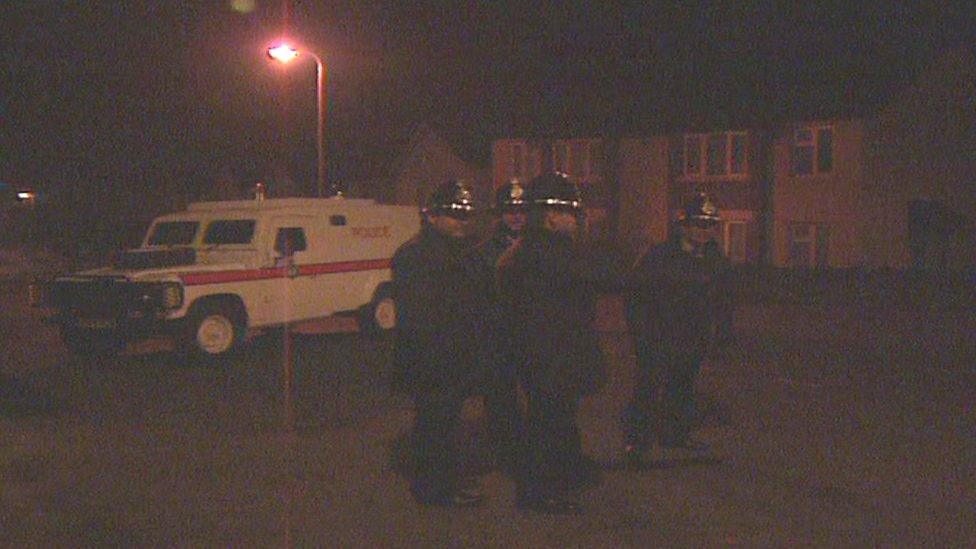
Police were drafted in from across south Wales to deal with the riots
Mr Sullivan, a freight train driver, said: " I was a shift-worker and they had the helicopter flying around for three nights.
"The rioters were on one side of the road and the police were all there with shields. It was horrible. Really bad."
In that same period, at the end of August and start of September 1991, there was also unrest in Handsworth in Birmingham and Oxford. High unemployment, disaffected youth and the hot weather were all talked about as factors.
Police denied the ugly scenes in Cardiff constituted a "race riot".
While the UK immigrants Advisory Service agreed at the time, it said it "would be wrong to say there were no racial overtones" to what happened.
But Canon Bob Morgan, a former leader of South Glamorgan Council, said at the time the disruption was caused by the area's poverty and utter dejection.
"The build-up of this huge reservoir of disadvantaged youths, which not only can't find employment, but they have no real hope," he said.
"And I see a lot of this as a powerful expression of anger against their condition."
Canon Morgan - the father of Welsh assembly member Baroness Eluned Morgan, external - died in 2011.
He was critical of then-Home Secretary Kenneth Baker's wholesale condemnation of the rioters all over Britain as "yobbos and hooligans".
"It's pretty outrageous for a home secretary to talk in those terms. What on earth do they mean? He really should be concerned with the underlying causes of these matters," he said.
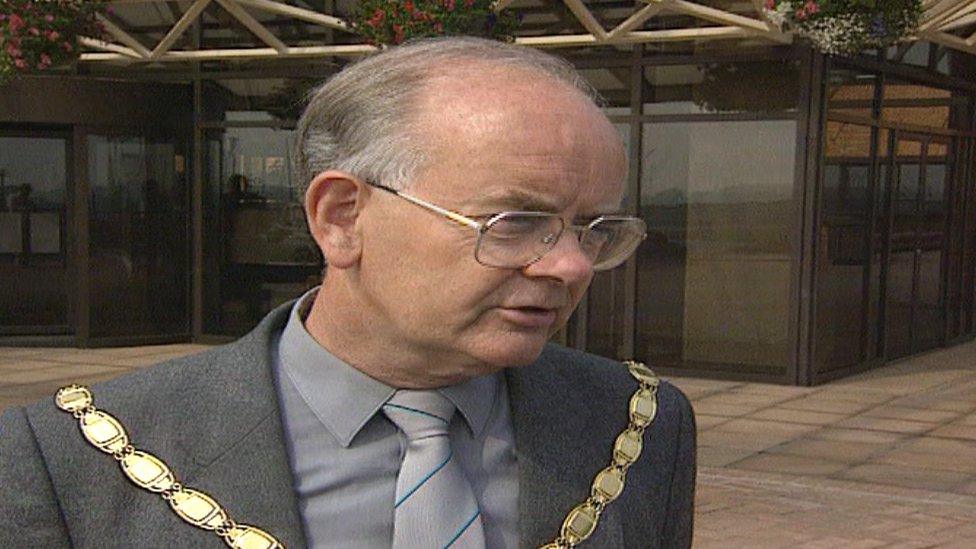
Canon Bob Morgan believed the Ely riots were a "powerful expression" of disaffection by the area's young people
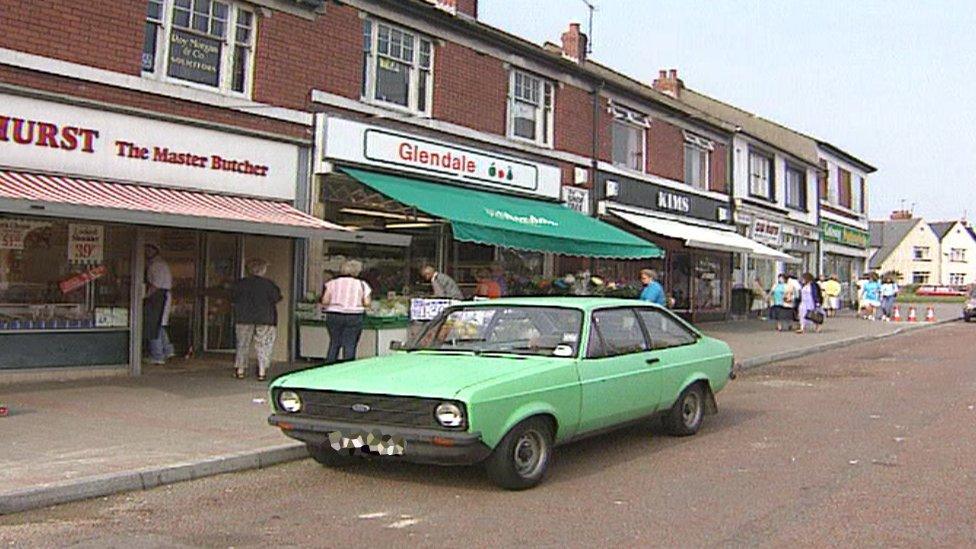
There are plans to turn what was the site of the riots on Wilson Road into housing
Unemployment among young men in some parts of Ely was as high as 30% at the time, with vandalism and street crime widespread.
Former first minister Rhodri Morgan, who was Cardiff West MP at the time, also blamed the lack of employment and the generally dismal prospects in Ely for the fervent atmosphere.
"People were just angry, I think it was because of the way they were treated," said Lynda Sullivan, Mr Sullivan's wife and secretary of the Ely Garden Villagers group, external and youth football team, Cardiff Hibernians.
But she feels the resulting stigma has stuck for too long, saying: "It [the rioting] only lasted three days and it's taken how long to forget?"
'Very painful'
Mrs Sullivan, 51, a support worker, added: "It is a very painful [memory], we just wish people would forget about it.
"We don't mention to our children. We don't want them knowing about it. We want to be remembered for the right reasons, not the wrong reasons."
Her husband agrees.
"We have been working hard over the last eight years to change everything, build a bit of a sense of community spirit, but it [the stigma] always come back to us," he said.
"We have people showing up in their posh cars from Cardiff, places like Rhiwbina, and they say 'that's where the Ely riots were'. And that's 25 years ago."
The pair have developed Cardiff Hibernians into a club with several sides for children aged under eight to 14, set up the annual Elympics sports day, external for local schools and arranged firework displays.
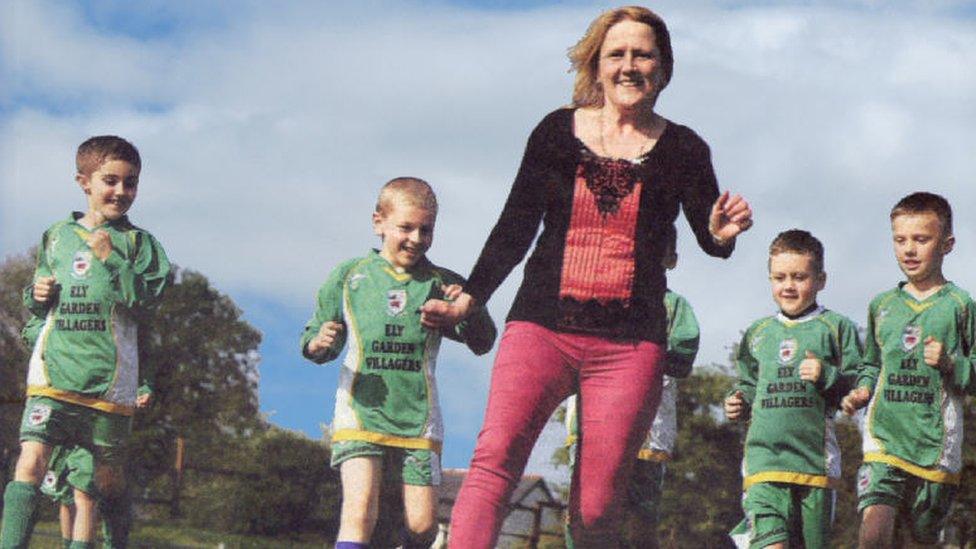
Lynda Sullivan, of Cardiff Hibernians, hopes youngsters in the area can feel proud of Ely 25 years after the riots
Among their many fundraising efforts, the couple's group has managed to secure £21,500 from Keep Wales Tidy, external for fencing around a football pitch, when funding was otherwise wanting.
Mrs Sullivan said: "What's most frustrating is we have got a close community up here.
"What we have found since we have done the football is, the first year the kids come here they are absolutely terrified and they mention the Ely riots.
"But then they see how fantastic Ely is and they can't wait to come back. They realise Ely wasn't the place they thought it was."

The Elympics sees school children from Ely competing in an annual sportsday
Those working to remove the stain of the riots hope it will be washed away forever if the site where the demolished shops once stood is turned into a new housing estate.
A plan has been created as part of Cardiff council's housing partnership programme, external, with the proposal to be put forward in October.
Mr and Mrs Sullivan said the site was currently a derelict, overgrown area often used for fly-tipping, which stands as an unsightly reminder.
"We managed to get the plans for building on there. Really, the sooner they get put up and build, it will be for the better," Mr Sullivan said.
- Published30 August 2016
- Published30 August 2016
